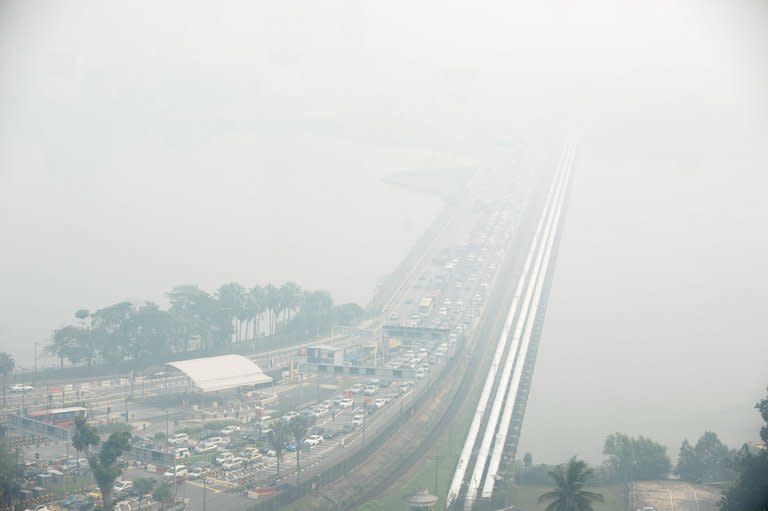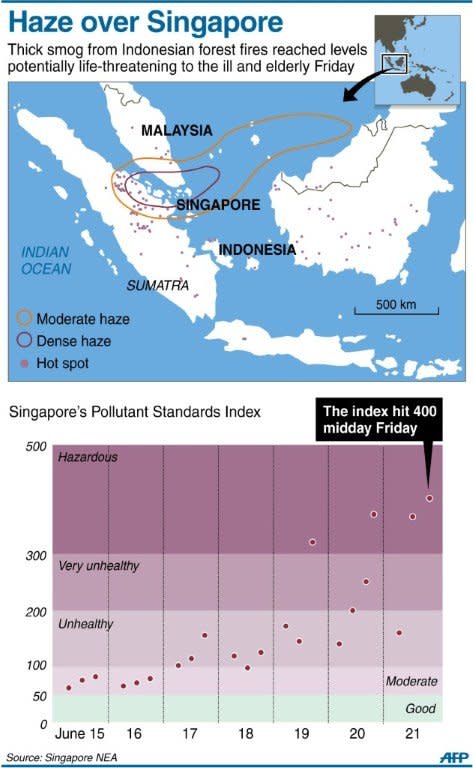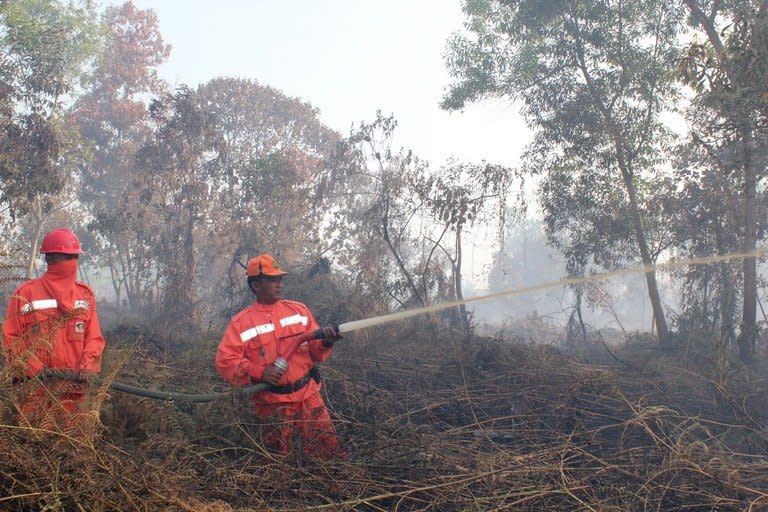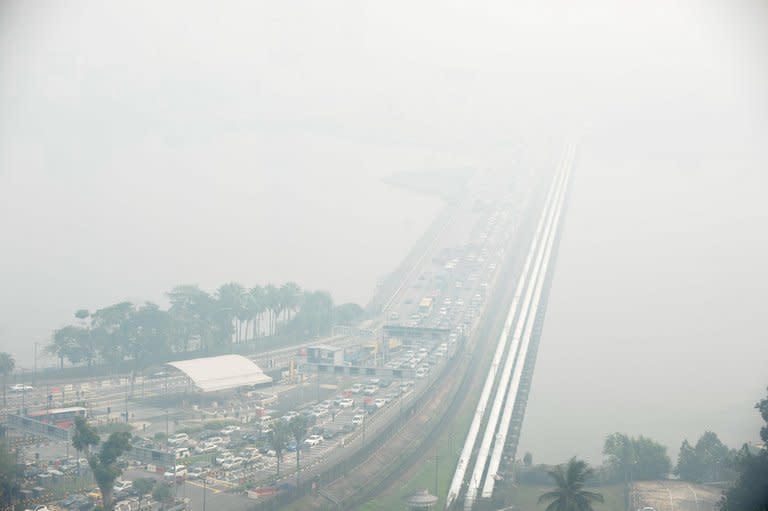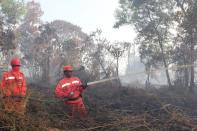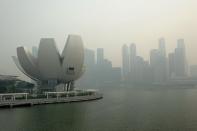Indonesia deploys aircraft as Singapore haze hits record
Indonesia deployed aircraft Friday to artificially create rain in a bid to douse raging fires that have choked Singapore with smog, which is hitting record-breaking levels that pose a threat to the elderly and the ill. At a late-night emergency meeting, President Susilo Bambang Yudhoyono ordered disaster officials to "immediately mobilise all the country's resources" to extinguish the fires on Sumatra island that have created vast palls of smoke. Singapore's worst environmental crisis in more than a decade has seen the acrid smoke creep into people's flats and cloak residential blocks as well as downtown skyscrapers, and the island's prime minister has warned it could last weeks. Indonesia's national disaster agency said that three helicopters carrying cloud-seeding equipment, which chemically induces rain, had been sent to Riau province, where vast swathes of carbon-rich peatland are burning. Two planes were also there and the agency planned to send another five, said agency spokesman Sutopo Purwo Nugroho. The aircraft would use cloud-seeding and would also water-bomb the blazes, he said. Firefighters on the ground have struggled to put out the blazes, which are burning under the surface of the peat. Emergency workers tackling blazes in Bengkalis district, the worst hit area, were "overwhelmed" and unable to cope, Ahmad Saerozi, the head of the natural resources conservation agency in the province, told AFP. "We have been fighting fires 24 hours a day for two weeks," he said, adding that aircraft must "drop water as soon as possible. We can't do this alone". As Indonesia stepped up its fire-fighting efforts, Singapore's smog index hit the critical 400 level, making it potentially life-threatening to the ill and elderly people, according to a government monitoring site. The all-time record level was reached at 11:00 am (0300 GMT) on Friday after a rapid rise in the Pollutant Standards Index (PSI). It had fallen back to 143 by 5:00 pm (0900 GMT). According to Singapore government guidelines, sustained PSI average levels above 400 on a 24-hour basis "may be life-threatening to ill and elderly persons". Before the latest crisis which erupted on Monday, the previous Singapore air pollutant index high was 226, recorded in September 1997. That episode cost the Southeast Asian region billions of dollars and also resulted from vast amounts of haze from Indonesia, where slash-and-burn farming generates heavy smoke during the dry season that begins in June. Parts of Malaysia close to Singapore have also been severely affected by the smog this week. The haze crisis has had a dramatic impact on life in Singapore, with the city-state's residents scaling back their activities in a bid to protect themselves. Fast-food deliveries have been cancelled, the army has suspended field training, commuters are wearing medical masks, and economists are warning that the smog could have an impact on the rich city-state's economy. Singapore's top Islamic authority even allowed local Muslims to skip Friday prayers, as thick haze continued to drift in from the world's most populous Muslim-majority nation. Vivian Balakrishnan, Singapore's minister for environment and water resources, held emergency talks with his counterpart in Jakarta on Friday and called for the city-state and Indonesia to work together to solve the "urgent problem". Singapore has been ramping up pressure on Indonesia to take more action -- but Jakarta has become increasingly irate and an Indonesian minister on Thursday accused Singapore of acting "like a child".

